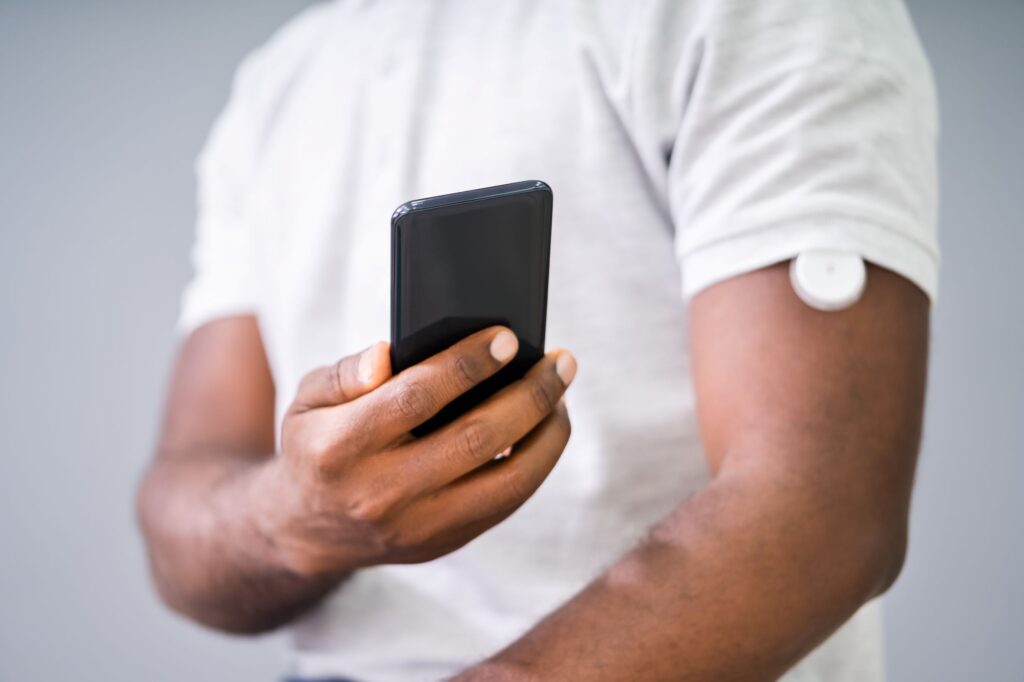Producers of stick-to-skin medical devices have to make a lot of choices as they work to bring products from design concept to commercial production. But one of the most important decisions involves your choice of adhesive material. Because the adhesive you use has a direct impact on patient comfort and product performance, it’s critical you weigh your options carefully and find a partner that can help guide your selection. Here are some of the top considerations in choosing stick-to-skin adhesive materials and how the right medical converting partner can help improve product design.
How does the adhesive manage moisture?
Perhaps the most important factor for medical wearable devices is moisture management. Adhesive materials have a variety of ways to manage bodily fluids like sweat, oil, blood and others. The two most common forms of moisture management are fluid absorption (where the adhesive actually takes on the moisture and holds it away from the skin) and moisture-vapor transmission (where tiny holes in the adhesive material allow moisture to evaporate). Both kinds of materials have advantages for different applications.
However, you need to consider the design and construction of the entire device. A breathable adhesive that allows fluids to evaporate won’t be suitable if materials in outer layers of the product prevent moisture transmission. A converting partner can help you think holistically about your materials and design needs and make recommendations to ensure consistent product performance.
Is the adhesive material skin-friendly?
It’s an issue faced by every producer of stick-to-skin medical devices: The adhesive needs to be strong enough to stay securely fixed as the patient moves, but it also needs to limit skin irritation as much as possible. This is particularly important for devices designed for patients who may have more sensitive skin or where maceration is of particular concern.
Using 2-in-1 products can help solve this problem as they feature different adhesive materials for the skin-contact layer and construction layer, or tie-layer. However, you’ll need to make sure these materials work in harmony as different adhesives can sometimes be incompatible. An experienced converter can advise your engineers on how to find the perfect balance to ensure product performance and patient comfort.
Does it offer optical clarity?
Do medical professionals need to be able to visually inspect the application site without fully removing the device? If so, you’ll need an adhesive that offers visual clarity while maintaining the integrity of the device. This is also important in situations where light sensing is required. Medical converters can make suggestions for adhesives that offer both strength and visual clarity.
How long is the product wear time?
Is the product designed for long wear times (up to three weeks) or short-term use (less than 30 minutes)? The longevity of the finished product is directly tied to your adhesive selection, making the material you choose a critical component of the product’s end use. Engineers and converters should collaborate to select adhesive materials that match the intended wear time.
Is the material scalable?
As you look to gain market share with new products, you need to make sure that every aspect of production is scalable to meet your growing need. That includes your adhesive. So, you want to make sure your selection will not only be available in large enough quantities, but you also need to make sure your converting partner is capable of converting materials at scale. This means they have strong partnerships with materials suppliers and have the production means to ramp up quickly and provide fast turnaround from design concept to prototype to commercial production.
The adhesive materials you choose for stick-to-skin medical devices have a direct impact on product performance, patient comfort and your ability to produce products at scale. This is why you need to consider all factors carefully when making decisions on materials. An experienced medical converter can use their expertise to help guide your selection of adhesives and create products that make an impact in the medical market.
Looking for a converting partner that can help bring medical devices to life with consistent quality and speed? Contact The Tape Lab to see how our experienced team can help you convert your ideas into powerful products.
